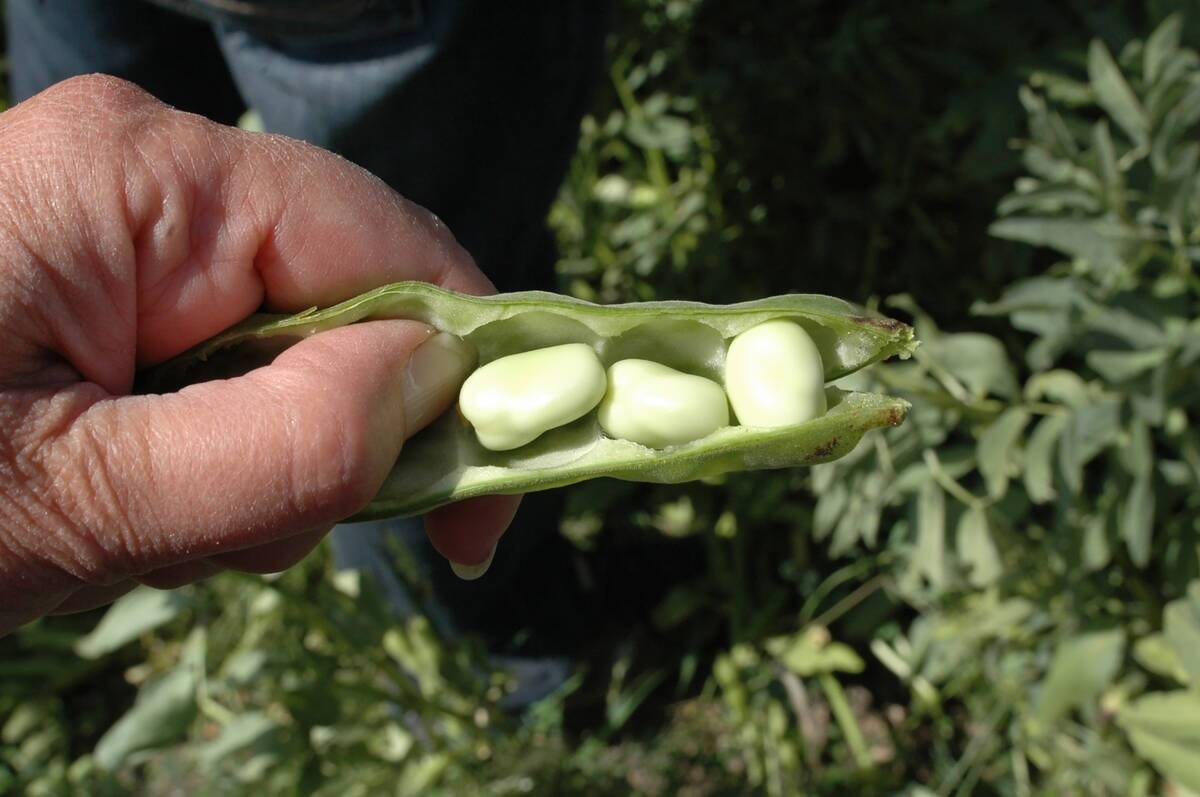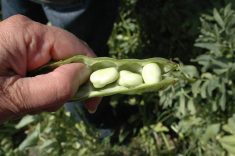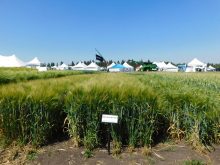“I am very disappointed to hear that CFIA (Canadian Food Inspection Agency) is reconsidering changes to the food labelling content levels put in place a year ago,”
ROB BORAS
ALBERTA SUGAR BEET GROWERS MARKETING BOARD PRESIDENT
Threats of decreasing the percentage of Canadian sugar in processed foods and still qualifying for a Made-in-Canada food label has raised concerns in southern Alberta’s sugar beet industry.
The existing rule says ingredients like sugar in processed foods should be 98 per cent Canadian to qualify for the Made-in-Canada label. There have been calls to drop the level to 85 per cent.
Read Also

New crop insurer policy enables easier startup for faba beans
Agriculture Financial Services Corporation updated its normals for faba beans, which may open the door for more Canadian producers to feel comfortable growing the pulse crop in the future.
“I am very disappointed to hear that CFIA (Canadian Food Inspection Agency) is reconsidering changes to the food labelling content levels put in place a year ago,” said Rob Boras of Iron Springs, president of the Alberta Sugar Beet Growers Marketing Board, in a letter to Lethbridge Conservative MP Rick Casson.
Casson, reached on his way to Ottawa, jumped to the defence of the sugar beet industry. He can’t understand why the Canadian product content debate has been reopened. “I want it to stay that way.” Casson was uncertain of the deadline for public comment, but urged a strong letter and email campaign to support the southern Alberta sugar industry.
Casson said the Lantic sugar factory in Taber can be expanded and growers are still looking for a more solid industry.
Boras said any reduction on the use of Canadian sugar will affect the industry. “With the ‘Product-of-Canada’ on the label of many foods, including sugar, it was thought that the sugar beet industry would stand some chance of competing with foreign-sourced ingredients,” said Boras. “It helped us remain optimistic about our future.”
Boras said the suggestion from some people that Canadian sugar is difficult to find is not true.
“Alberta produces more sugar than can be consumed in western Canada and in turn has to find export markets.” said Boras. “Why not keep it in Canada instead? If those food manufacturers want Canadian-made sugar it can travel across this country quite freely.”














